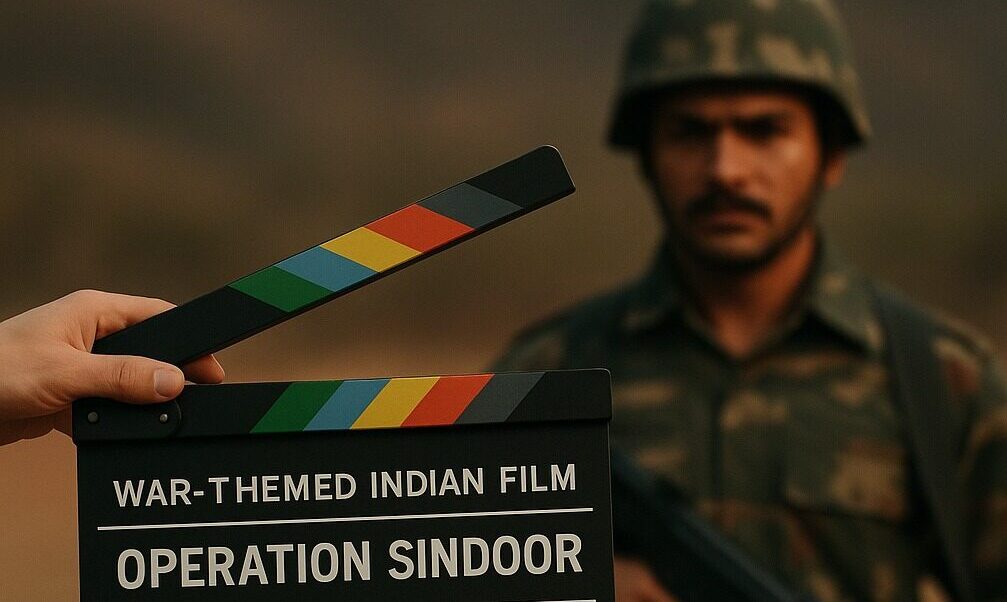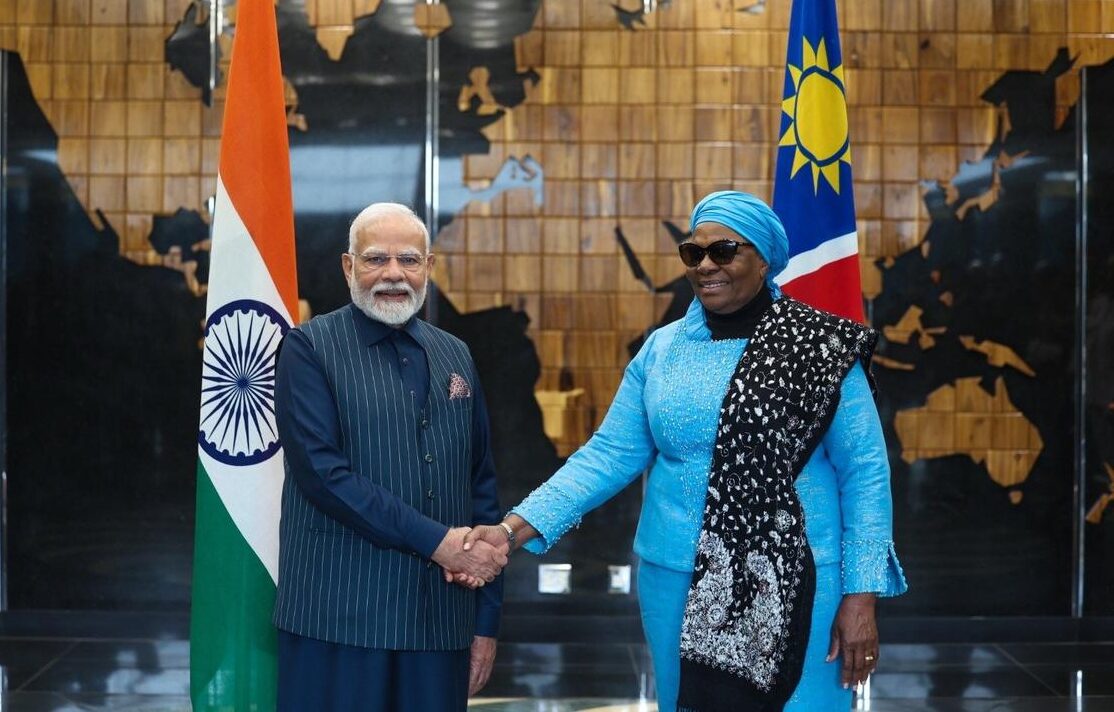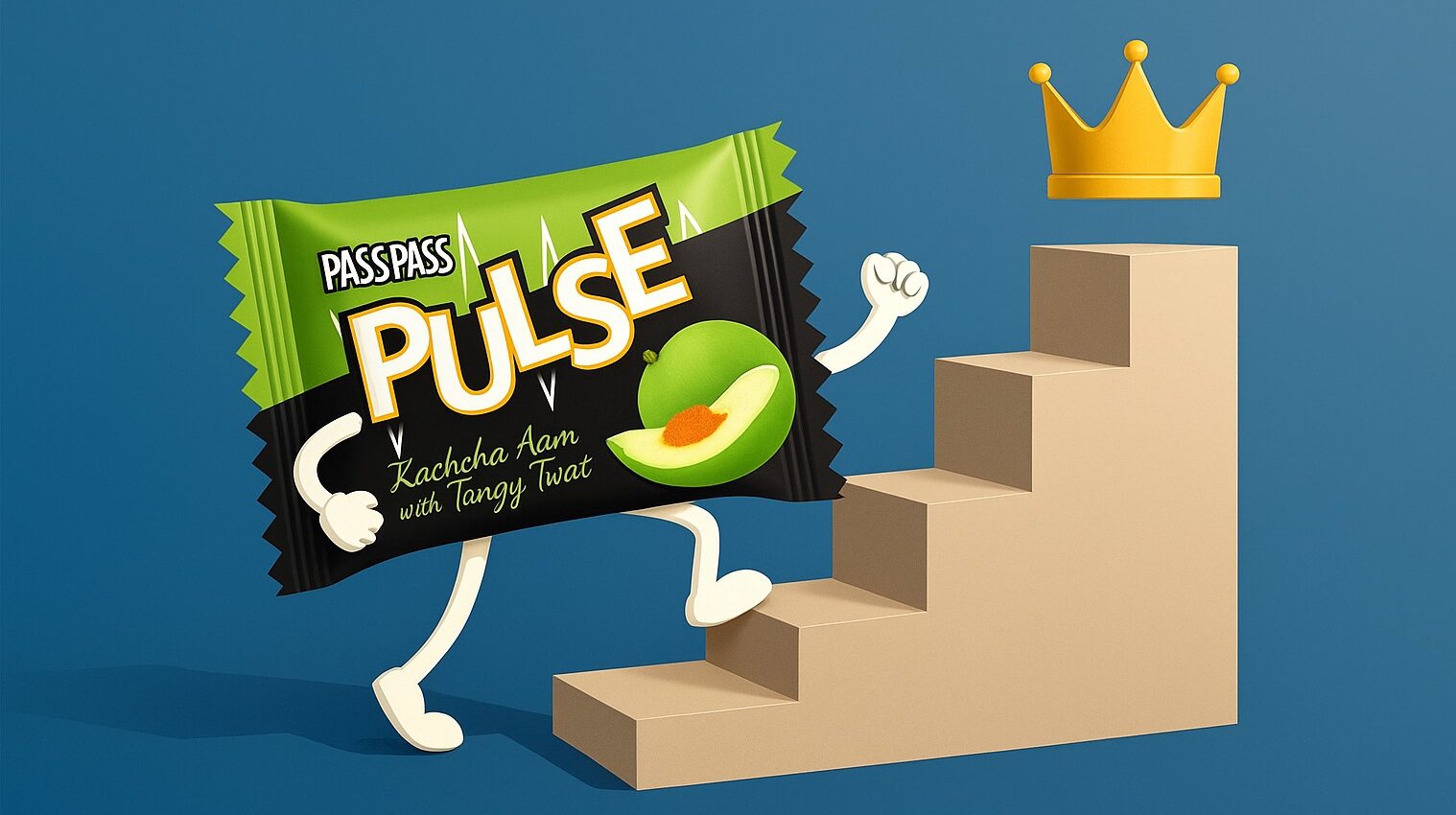When Operation Sindoor India’s bold precision strike across the Line of Control, dominated headlines, it didn’t take long for commercial interests to follow. Four trademark applications were immediately made in India’s trademark register under Class 41 in an effort to secure the term for future entertainment and educational material. One of them was by none other than Reliance Industries Ltd (RIL) in the form of its content arm Jio Studios. However, RIL later withdrew the filing, clarifying it was made “inadvertently by a junior person without authorization”.

Yet this brief foray into intellectual property underscores a growing phenomenon in Indian cinema and branding: the war story as a commercial commodity.
War as a Genre, Brand, and Business
India has long used cinema to portray its military valor from Border (1997) to Shershaah (2021), and more recently, Uri: The Surgical Strike (2019), which became a cultural and box office juggernaut. Each of these films didn’t just capture public sentiment they were tightly woven into the narrative of national pride and defense.
Now, media houses and production studios see not only storytelling but also branding potential in military terms. War codenames, operations, and slogans are becoming valuable intellectual property.
‘Operation Sindoor’: A Case Study in Sensitivity and Strategy
According to a report in The Times of India, four applicants including Reliance Industries Ltd, Mukesh Chetram Agrawal, Retired Group Captain Kamal Singh Oberh, and Alok Kothari filed to trademark Operation Sindoor. These applications fell under Class 41, covering entertainment rights like film and audio-visual content, stage shows, educational programs, and digital streaming.
RIL, however, promptly issued a statement:
“Reliance Industries has no intention of trademarking Operation Sindoor, a phrase which is now a part of the national consciousness as an evocative symbol of Indian bravery… Jio Studios has withdrawn its trademark application, which was filed inadvertently.”
The company also emphasized its support for the armed forces and stated that its commitment to the nation’s interest remains “unwavering.”
Previous Attempts to Brand War
This isn’t the first attempt to capitalize on military events. Post-Uri, filmmakers rushed to register terms like “Surgical Strike,” “Balakot,” and “Pulwama Files.” Many of these terms became battlegrounds in India’s competitive IP landscape, where titles are sometimes reserved years before a script is written.

Even The Kashmir Files (2022) sparked waves of domain registrations and brand protections related to Kashmir’s conflict narrative.
The IP Dilemma: Ownership vs. Public Sentiment
Registering military operations as trademarks, though legal, comes with ethical baggage. Ashish Pyasi, Partner at Aendri Legal, told the Economic Times that entities registering such terms under Class 41 could exclusively use them for shows, digital content, and other entertainment-related activities. But exclusivity can often clash with national sentiment.
In Reliance’s case, this likely prompted the swift withdrawal. Associating a real military operation with corporate branding particularly without express intent or national alignment risked backlash.
War Stories or War Symbols?
With geopolitical tensions and nationalist fervor frequently reflected in Indian popular culture, the impulse to appropriate cultural and strategic terminology as intellectual property is only intensifying. Yet, as the Operation Sindoor episode illustrates, even behemoths like Reliance have to be careful to walk the line between business and patriotism.
Also Read: Operation Sindoor: Markets React as India Strikes Pakistan Camps

























